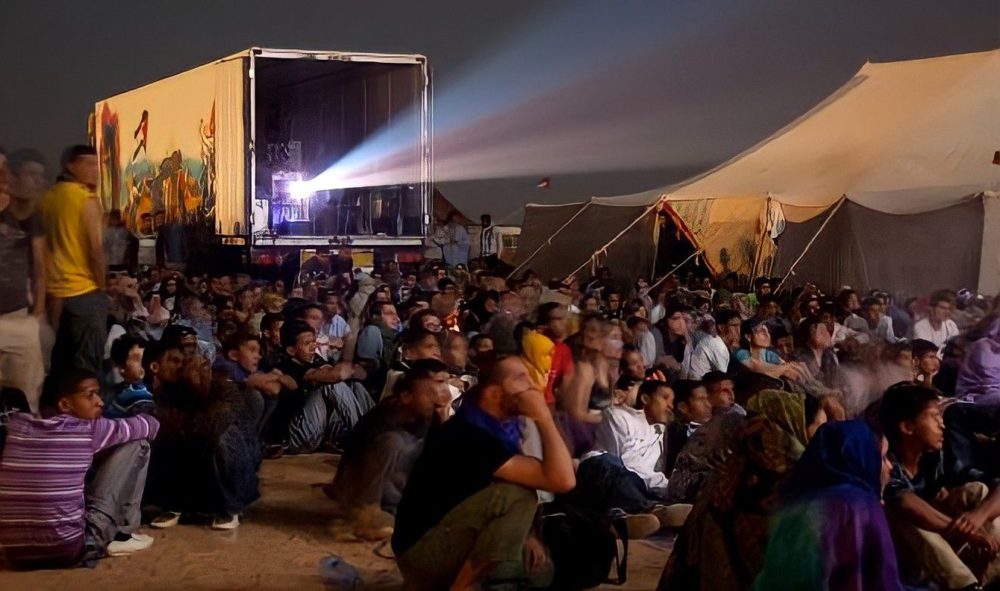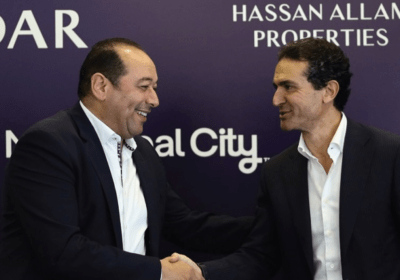“Life must win”
These words, taken from an interview with the business tycoon Naguib Sawiris; the Founder of the El Gouna Film Festival, are the best to describe the main set of topics presented by the festival’s fifth edition through its movies, panels, masterclasses, and other functions of the festival.
On top of all the issues addressed by the festival, the refugee’s one came to occupy the first place in our minds and the minds of all those present, although it is a topic as old as history, and it is not the first time that the festival or even other international festivals to discuss, it still exists with all the problems and suffering it carries, still needs more voices to be heard; and sadly, with not much of real accomplishments on ground.
The humanitarian side of GFF
The fact that the festival’s slogan is “cinema for humanity” opened many avenues of discussion regarding the effective role of the cinema industry in this specific topic, and the runners of El Gouna Film Festival have always been strong supporters of this specific file. This is easily seen through their cooperation with the United Nations High Commissioner for Refugees since the last edition – and by tackling discussions, panels, and screening many films that show the lives of refugees from various angles.
Last year we witnessed a panel discussion for the United Nations High Commissioner for Refugees and the Sawiris Foundation, under the title “Children, are important”. Many celebrities and representatives from UNHCR tackled the important role of the new media; shedding light on children struggling in refugee camps, etc.
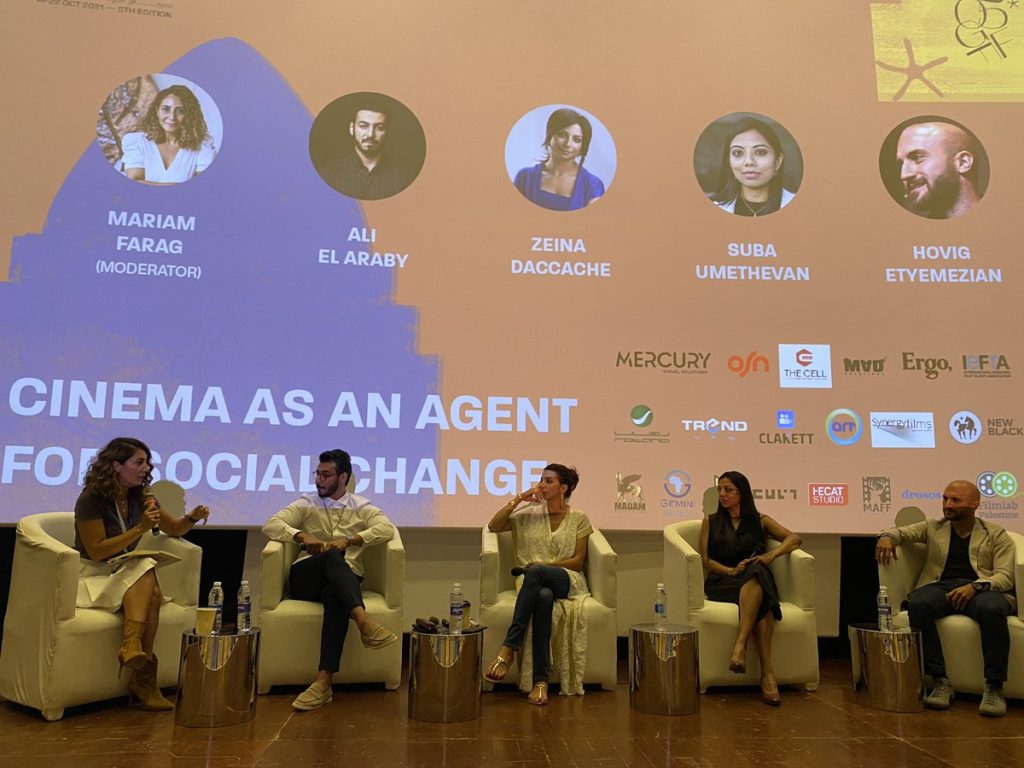
from this year’s “Cinema As An Agent for Social Change” panel
What is the refugee issue?
Earlier research was made through the UNHCR, مليون شخص، والمفوض السامي يحث على مزيد من التضامن من أجل الاستجابة (unhcr.org), found that the number of people fleeing war, persecution, and conflict exceeded 70 million in 2018, the highest level is seen by UNHCR in nearly 70 years since its founding and out of the 60 million refugees in the world, 40 percent came from the Arab region, mainly from Syria and Palestine.
Unfortunately, the numbers of refugees continue to increase by the day, which leaves a lot of room to wonder about the effective role that we can play to give real support and assistance to Arab refugees or displaced people in general.
And here, a tool like cinema presents itself. This magical tool (that started out as merely a box) flies you off to lands you never knew existed and intertwine your life with that of others by breaking every time and space barrier possible. A tool, that can very much give voice to the voiceless and make a serious change in the collective consciousness.
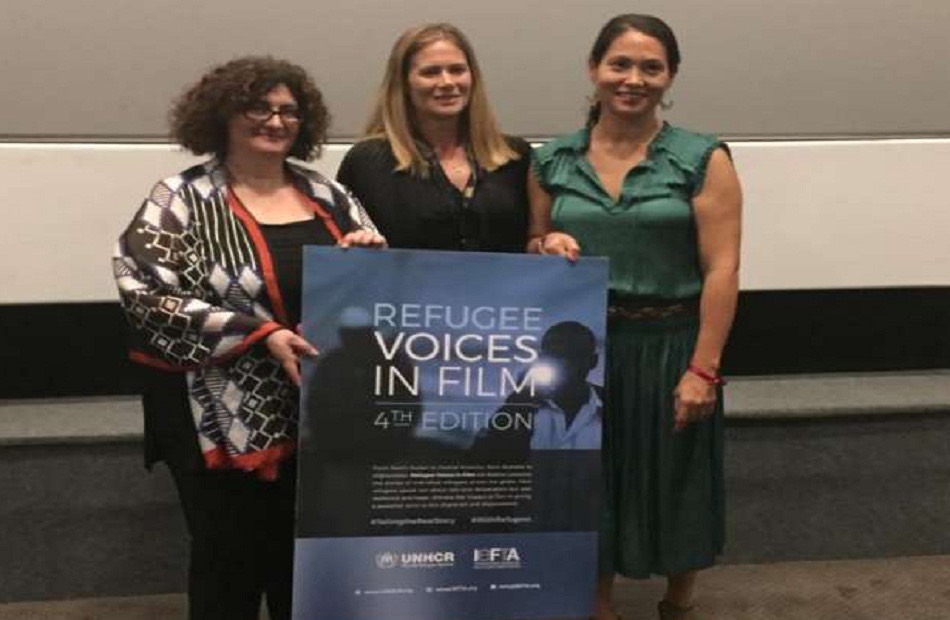
What is the role of cinema when it comes to pressing social issues?
Our take is, filmmaking is one of the most influential in the current times. Especially in this stage of digital transformation and audio-visual technology, which in turn, places a greater burden of responsibility on filmmakers to express the reality of their societies without losing the “entertainment” factor, that cinema and art were generally based on.
And naturally, sometimes our reality can be much worse than we imagine, and the embodiment of that reality on screen may appear to be offensive in a way or to some people. The movie “feathers” by Omar El Zoheiry is a great example…
In movies such as Limbo, the winning film of last year’s Cairo International Film Festival, which carried a crucial message to the West, a refugee “does not want to take the place of any of their citizens. On the contrary, it is the circumstances that force him to do so, and he is suffering so much that he accepts to live away from his homeland” as stated in the movie.

But still, the world sometimes needs to see a bright side and potential hope behind these stories, and in this year’s edition of GFF, some filmmakers chose to leave us on a positive note. Through 7 different films, we got to see bittersweet endings to stories of suffering and exile.
On top of those films came the movie Captain Zaatari, An Egyptian documentary, by Egyptian director Ali Elaraby, which revolves around Mahmoud and Fawzi, who have been living in the Zaatari refugee camp in Jordan for five years. The two young Syrians who despite their suffering and difficult circumstances, they are united by a love of football, and the dream of professionalism.
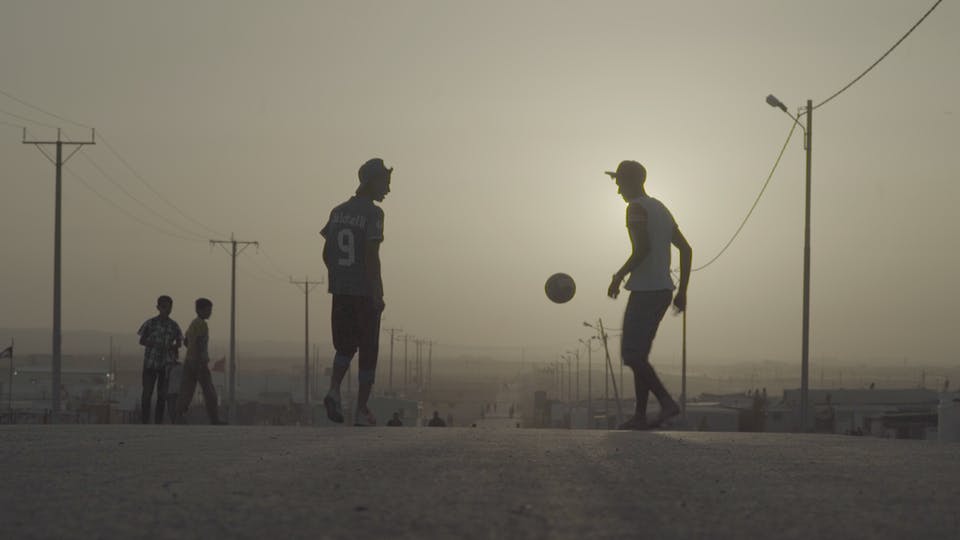
These films were preceded by many others like “Capernaum” which was nominated for an Oscar and won a jury prize at Cannes 2018, that influenced the direction of cinema production by focusing on showing such realistic aspects of the story, which clearly appeared in this film by choosing refugee children as the movie star.
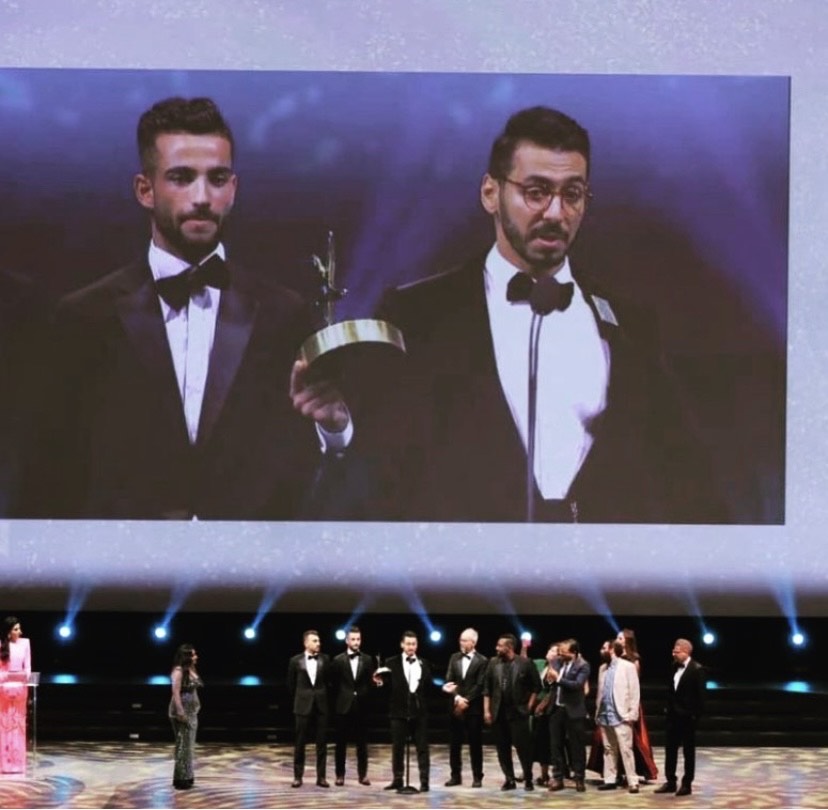
The crew of Captains of Zaatari after receiving their GFF award
It’s never the end of success, the most recent was the Palestinian director Muhammad Bakri winning the Creative Achievement Award at the closing ceremony of GFF. The world is looking forward to all the tools that cinema can use effectively, still waiting with hearts full of hope for this success to last forever.
But our question remains…will the day ever come when we see a general viewership or audience supporting films of real value? or will these types of independent movies remain limited to participation in international festivals?
To wrap this up, a refugee is not only in need of sympathy, what they truly need and deserve is a chance. And that’s exactly the direction our cinema industry is currently shifting towards. Nonetheless, if you find yourself wondering where and how to extend a donation to refugee camps, click on the UNHCR link below:
https://www.unhcr.org/ar/4f7178ff6.html
Get to know more about the history and the direct relation between movies and refugees here: https://www.unhcr.org/eg/ar/الأفلام-واللاجئون
Learn more about the film Captain Zataari through this link:
https://www.unhcr.org/eg/ar/23023-فيلم-كباتن-الزعتري-ضمن-المسابقة-الرسم.html)



















